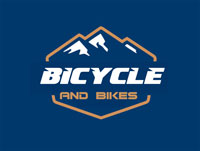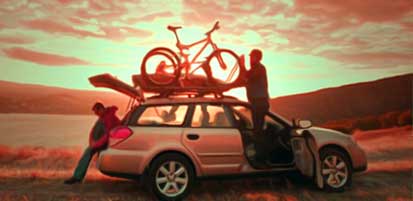The Bike Rack Terminology Guide:
For Your Car Bike Rack And RV Bike Racks
For When It’s All As Clear To You As … Mud
When it comes to installing your car bike rack or RV bike racks it can be tricky to navigate through all the complicated jargon. The Bike Rack Terminology Guide is designed as a reference guide to make it all much clearer.
Arms
Arms are the horizontal bars that your bicycles hang from/on.
Anti-Sway Cage
To prevent swaying during acceleration and braking – the Anti-Sway Cage holds your bike still and in place.
Ball Mount
A Ball Mount is a platform with a metal ball on it – which slips into the hitch receiver and is then fastened using a pin and clip. It is a removable piece of equipment – hence the name – you can mount it or dismount it!.
Bolt-on Trailer Hitch
This is an undercar trailer hitch which is permanent. It connects the towing vehicle and the trailer.
It can be either a fixed tongue hitch or a receiver style hitch.
Bike Cradles
Bike cradles are used to separate your bikes when they are in the racks.
They are used so that when you are merrily driving along – your bikes aren’t rubbing together and scratching each other!
Bike Lock
A bike lock, (funnily enough), locks your bicycles to your hitch so that your bike can’t be nicked.
Bumper
Your bumper is a bar which protects the front and rear ends of your RV against damage in the case of an accident … caused by someone else of course!
Custom Trailer Hitch
A custom trailer hitch is a hitch that has been designed specifically for your particular year, make and model of RV. (You lucky duck!)
Fixed Tongue Hitch
A fixed tongue hitch is a trailer hitch that has a ball platform – aka tongue – permanently attached to it. (hence the name fixed.)
Fold Down
A fold-down rack is one that, (surprise, surprise), you can fold down!
This is a useful feature if the rear of your vehicle opens upwards. It means that you can open your back-door without having to take your bike rack off.
Hitch
A hitch is a piece of equipment which attaches your vehicle – to your the trailer.
Hitch Ball
A hitch ball is that ball-shaped contraption, onto which the trailer coupler is fastened – enabling your vehicle and trailer can be joined together.
Hitch Clearance
Hitch clearance is a measurement.
It is used when you have a vehicle – which has its spare tire mounted at the back – and you want to attach a bike rack which is hitch mounted.
Hitch Lock
A hitch lock secures your hitch to your vehicle – so that your hitch can’t be stolen.
Pin
A pin is used to secure anything that is put into a receiver hitch – like your ball mount or bike racks.
You can buy these in both standard and locking configurations.
Receiver
The receiver is the hole in the trailer hitch into which things are inserted such as ball mounts and bike racks – aka receptacle.
The most common receiver sizes are 1.25 inches or 3.175cm – and – 2inches or 5.08cm.
Receiver Style Hitch
A receiver-style hitch is a hitch that can have things inserted into its receptacle (hole) – like your drawbars, ball mounts, or bike racks.
RV
RV is a North American acronym for Recreational Vehicle
An RV is basically – a vehicle equipped with the same type of living space and amenities that are found in your own home (but on a mini scale!).
In other nations the names – motorhome, caravan or campervan are much more commonly used.
There Are Different Types Of Vehicles Which Are Generally Labeled As RVs – These Include:
A Class-A Motorhome, Bus Conversion, Class-B campervan, Class-C Motorhome, Truck camper, Popup camper, Travel trailer, Teardrop trailer, Hybrid trailer, Fifth-wheel trailer, Toterhome, and Toy hauler
Tongue
The tongue is the portion of your trailer which extends forward from the trailer box – this includes the trailer coupler.
Tow vehicle aka Towing Vehicle
The strong brutish vehicle that hauls along the trailer … aka your RV or car.
Trailer Coupler
A trailer coupler is a clamping gizmo that connects your trailer to the hitch of your vehicle. They work by fastening around the hitch ball.
Trailer couplers can vary in form and function but they all essentially do the same job.
Some trailer couplers tighten the clamp using a hand wheel … and others employ a lever or toggle to fasten the coupler.

